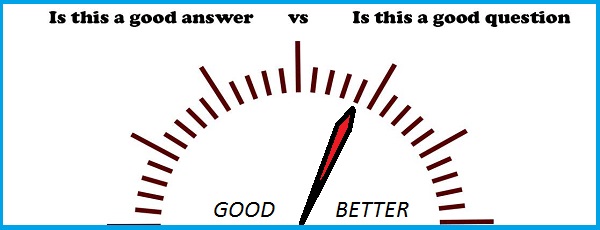With every business acquisition due diligence, you have to boil it down to 3 things:
1) How much does it cost?
2) What does it make?
3) What do I have to do to make that money?
Obvious, right? Well, hang on. Because I know you’re wondering about when things are going well, how many hours does a FedEx contractor work in an average week?
5 hours a week.
There’s your answer. Most people researching how to do due diligence for routes on their own feel like they’ve gotten the answer and it’s time to move on. Unfortunately, for those people they’re asking the wrong questions to begin with so getting the answers doesn’t actually help them, but does something even worse – it gives them a false sense of security.
It’s hard enough to get legit, straightforward answers to your questions. But it’s nearly impossible to know whether the question itself has any merit or not.

This is precisely why during an initial call with a client, I lay out a guided path to set the frame work for determining what things to ignore and what things to focus in on. If I just answered questions blindly, I’d have a happy client because they got their questions answered. If I instead showed an entire framework for understanding this industry, helped formulate good questions with that client, and then got those critical questions answered, now I have an elated client. Now only that, it takes less time to do it that way as well so most people wrap their head around this process not only even better, but faster.
This is how powerfully valuable consultations are structured.
Now that I’ve covered that a bit, now we can get to asking a better question and getting that answer for you right now. Now, people that have worked with me know that I try to find reasons to say no to routes as quickly as possible. This allows for the broker to not get annoyed with you asking irrelevant and throwing a never ending slew of questions at him. And even more important than wasting the broker’s time, is wasting your own time. If you ask a lot of good questions, you could still waste your time. Because even if the question is good, it’d be better if you asked certain questions that knew would be deal breakers for you right off the bat. That way if the answers to your questions were positive then you’ll feel confident about understanding the intricacies of the route bundle you’re looking at, present a fair offer, and get moving forward fast before someone else snags it out from under you.
So, the better question is:
What am I doing in those 5 hours?
The answer here could be showing up to the terminal to help with the morning sort, saying hello to employees, shaking the terminal managers hand and discussing some issues with your own personal manager (your route bundle has a manager already in place, right?) and doing other things like that. You also might be hiring, or firing people as needed and dealing with the trucks and/or HR issues. We could dig into that deeper, and knowing those things is well and good…however, we can ask an even better question.
The best question is:
If I work only 5 hours a week, can I pick when those hours are and am I always working 5 hours consistently?
The answer here is “not a chance” and “definitely not.” The reasons for those answers is something we go into during consultation, and those answers change between each route bundle for a variety of reasons that takes time to uncover. This question is the best question, because it’s both a) an easy question to get answered and b) allows for the fastest way to knock out a potential route for people unsuited for it. Because if you’re only available after 5pm only, and even though you’re happy to work those 5 hours a week in the evening, it doesn’t matter because if you were considering keeping your job and managing these routes and putting in your 5 hours of time on the weekends, you can see quickly that routes aren’t likely a good fit for you.
The goal of this article is demonstrating how incredibly difficult it is to ask the right questions. Maybe you can crank out a few great questions on your own in the initial stages, but the chance of cranking out excellent questions over and over throughout this entire process of evaluating a FedEx route (or a bread route for that matter) is pretty dang unlikely.
If someone just gives you answers to your questions, they’re giving you what you want.
If I provide you both the right questions and then discuss the answers, I’m giving you what you need.
Let’s hit the ground running and get to work together…

